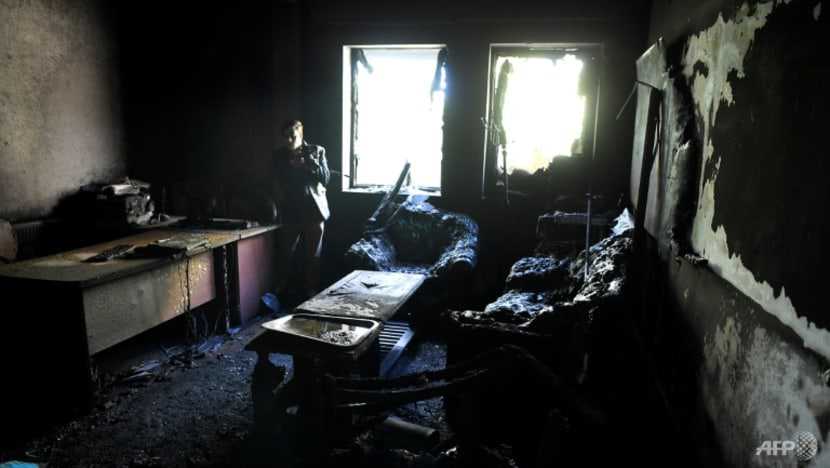What is the Islamic State threat in Afghanistan?
26 August, 2021

As desperate Afghans crowd Kabul airport trying to get on any evacuation flights to flee the Taliban, officials have warned of another jihadist threat: The Islamic State group.
President Joe Biden said there is "an acute and growing risk" of an attack at the airport by the group's regional chapter, called Islamic State-Khorasan or ISIS-K.
The United States, Britain and Australia have told people to leave the area for safer locations.
When asked directly about the threat, a Taliban spokesman acknowledged a risk of "nuisances" causing trouble in a chaotic situation they blamed entirely on the US-led evacuation.
What is Islamic State-Khorasan?
Months after the Islamic State declared a caliphate in Iraq and Syria in 2014, breakaway fighters from the Pakistani Taliban joined militants in Afghanistan to form a regional chapter, pledging allegiance to Islamic State leader Abu Bakr al-Baghdadi.
The group was formally acknowledged by the central Islamic State leadership the next year as it sunk roots in northeastern Afghanistan, particularly Kunar, Nangarhar and Nuristan provinces.
It also managed to set up sleeper cells in other parts of Pakistan and Afghanistan, including Kabul, according to United Nations monitors.
Latest estimates of its strength vary from several thousand active fighters to as low as 500, according to a UN Security Council report released last month.
"Khorasan" is a historical name for the region, taking in parts of what is today Pakistan, Iran, Afghanistan and Central Asia.
What kind of attacks has it carried out?
The Islamic State's Afghanistan-Pakistan chapter has been responsible for some of the deadliest attacks of recent years.
It has massacred civilians in both countries, at mosques, shrines, public squares and even hospitals.
The group has especially targeted Muslims from sects it considers heretical, including Shiites.
Last year, it was blamed for an attack that shocked the world - gunmen went on a bloody rampage at a maternity ward in a predominantly Shiite neighbourhood of Kabul, killing 16 mothers and mothers-to-be.
Beyond bombings and massacres, IS-Khorasan has failed to hold any territory in the region, suffering huge losses because of Taliban and US-led military operations.
According to UN and US military assessments, after the phase of heavy defeats IS-Khorasan now operates largely through covert cells based in or near cities to carry out high-profile attacks.
What is IS-Khorasan's relationship with the Taliban?
While both groups are hardline Sunni militants, there is no love lost between them.
They have differed on the minutiae of religion and strategy, while claiming to be the true flag-bearers of jihad.
That tussle has led to bloody fighting between the two, with the Taliban emerging largely victorious after 2019 when IS-Khorasan failed to secure territory as its parent group did in the Middle East.
In a sign of the enmity between the two jihadist groups, Islamic State statements have referred to the Taliban as apostates.
Source: www.channelnewsasia.com
TAG(s):
